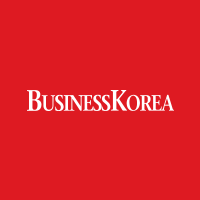The authors are economists of Shinhan Investment Corp. They can be reached at [email protected]. -- Ed. Korea-US interest rate re
The authors are economists of Shinhan Investment Corp. They can be reached at [email protected]. — Ed.
Korea-US interest rate reversal unlikely to trigger foreign capital outflows
The US policy rate is about to exceed the Korean base rate, rekindling concerns that a rate reversal could spark a massive outflow of foreign capital from Korea. However, contrary to market fears, no significant foreign capital outflows were recorded during periods of interest rate reversals in the past (May 1999-January 2000, July 2005-July 2007, February 2018-January 2020). In the event of an interest rate reversal between the two countries, foreign outflows remained mostly limited as investors focused on arbitrage opportunities from the gap between futures and spot forex rates (swap rate) and improvement in KRW-denominated return based on forex rate forecasts.
Foreign capital outflows to hinge mainly on KRW directionality
Arbitrage opportunities appear slim at the moment, considering the current interest rate spread and swap rate. With the extent of the anticipated interest rate reversal expected to remain within past levels (100bp at the most), we expect foreign capital flows to hinge mainly on KRW directionality in the near term. The USD/KRW rate has soared to KRW1,300 levels, factoring in most of the domestic negatives in advance. Meanwhile, key negatives such as Korea’s trade deficit, exacerbated by slowing export growth and higher commodity prices, is passing a peak and the outflow of foreign funds is expected to be limited.
In our view, the real problem lies overseas. Given recession fears and weak investor sentiment, we do not expect to see upward pressure on the dollar from stronger preference for safe assets. However, recession risks in Europe and other countries outside of the US could drive the USD higher going forward. Energy price hikes from a prolonged Ukraine-Russia war could also cause a recession in Europe over the winter. Further EUR depreciation may add upward pressure to the USD/KRW rate and spark an outflow of foreign funds from Korea. For now, we will need to watch for the results of EU-Russia energy negotiations in the coming autumn months.
www.businesskorea.co.kr
